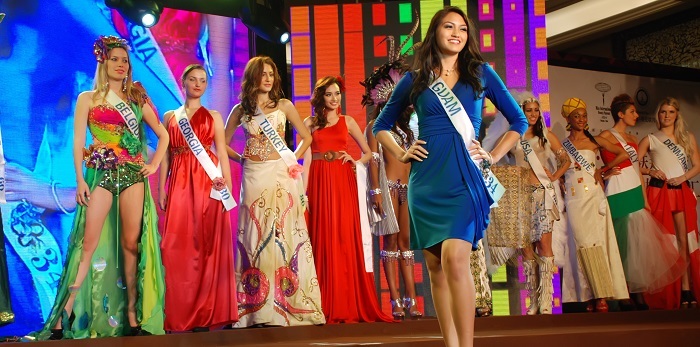

The International Culture Association established the international beauty pageant in Tokyo in 1960. As Miss International Beauty, it goes under several names. As the inaugural Miss International, Stella Márquez of Colombia was crowned. The Miss International Beauty Pageant is a demonstration of the fervent deeds of beauty ambassadors chosen from all across the world with the intention of advancing society.

In Tokyo this winter, attendees will come from roughly 68 different nations and regions. Beautiful ladies with great aspirations and a desire to serve the international community will travel as “ambassadors of goodwill” and take part in a variety of activities that develop deep connections among people and advance world peace. A new Miss International will be named at the pageant gala after being judged based on her performance during the weeks of preparation as well as her presentations of her national costume, swimsuit, long gown, and closing speech.
To promote “friendship and goodwill between all nations of the world” through international interaction, the Association was sanctioned and established in April 1969 (Showa 44) as an institution of the Ministry of Foreign Affairs (Cultural Exchange Division). Under the guiding principles of “seeking world peace through mutual understanding” and “proper understanding of Japan in the international community,” a broad range of interactions are being established as a contribution to global commerce. At the International Cultural Association, we support industries fit for the globalised society of the twenty-first century and actively broaden the scope of international exchange so that moving forward, we can contribute even more to Japan’s public image and have a greater understanding of one another.
The International Culture Association's main goals are to: collect and transmit Japanese and foreign cultures to the world; support youth and international student exchange programs; and support international exchange activities. By engaging in social action project activities, Miss International and Miss International Japan will be hosted while educating and empowering women.
By July 1 of the competition year, a contestant must be at least 19 years old and not more than 30 years old. The contestant must be unmarried, have never been pregnant, and be single. She must be morally upright and in good health. A contestant cannot have a felony conviction on their record. She must be a female who was naturally born. A competitor for a state title must be a citizen of the United States, have lived in the state of her entry for at least six months, work there, go to school there, or own property there.
International competitors may take the stage on behalf of the nation they were born in or where they currently live or work. Contestants from a given nation are required to show proof of their citizenship. It is acceptable to reside on a U.S. military installation either within the United States of America or at the same time in another nation. In the event that there is no competition in the contestant’s home state, country, or region, she may be chosen to represent them as a delegate “at large.” There will be a registration fee or a sponsor charge for the contestant. Each state or nation may have a different set of fees. Additionally, as of June 1 of the competition year, the contestant may not hold a “national” title with any other pageant system.
After the Miss Universe pageant moved to Miami Beach in 1960, the competition was established in Long Beach, California, USA. Up until 1967, the pageant was held in Long Beach, but from 1968 to 1970 it was held in Japan, always in a location where Expo ’70 was taking place. It was held in Long Beach again in 1971, but after that, it was held yearly in Japan until 2003. It has been held in China or Japan since 2004. Colombian Stella Araneta, the first winner of the pageant in 1960, took first place. Since that time, Japan has served as the pageant’s host nation, and the majority of its events have taken place there during the autumn, typically in October or November.
Ikumi Yoshimatsu, the winner of Miss International 2012, was deposed and prevented from crowning her successor because of a dispute with a talent agency that put her safety and the pageant itself in danger. Instead, Bea Santiago, the winner of Miss International 2008, was given the title by Alejandra Andreu. Just prior to the end of her reign, she became the first Japanese titleholder of the pageant to be overthrown. It was condemned for the organization’s purported request that Yoshimatsu forgo the succession ceremony and “act sick and shut up” in order to prevent a controversy involving a Japanese production firm whose head was allegedly pestering her.
Since the inaugural Miss International pageant took place in Long Beach in 1960, it has been 55 years. Since then, it has welcomed more than 70 goodwill ambassadors and helped foster worldwide amity and intercultural understanding. The competition is also known as “Miss International Beauty.” Contestants must exhibit kindness, benevolence, friendship, beauty, intelligence, the capacity for action, and, most importantly, a strong sense of global sensibility in order to fulfil the role of “Ambassadors of Peace and Beauty.” The promotion of world peace, goodwill, and understanding is the ultimate goal of the Miss International beauty pageant.